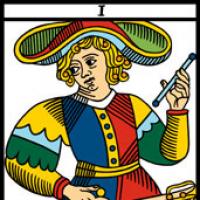メッセージ: 386
言語: English
chicago1 (プロフィールを表示) 2011年1月4日 21:39:24
I am a new speaker, although I've long harbored a hidden fascination with Esperanto. I attach a copy of an email I got several years ago from the guy that first taught me Eo. (I've removed his name to protect the innocent.) Just curious whether any of his "suggestions" have found sympathetic ears in your movement. I'm no auxlang expert, but these seem to make sense. (I think this guy is less than popular in the Eo community!)
Would be interesting to finally hear what the actual Eo world has to say.
Mustelvulpo (プロフィールを表示) 2011年1月4日 22:14:56
Also, I really don't like the idea of irregularites ("mi" becomes "min" but "ni" stays the same)Esperanto was designed to avoid them. If I had invented the language, sure, I probably would have done a few things differently, but I didn't so I'll learn it and use it as it is.
geo1963 (プロフィールを表示) 2011年1月4日 22:34:27
chicago1:Saluton.Nothing. Esperanto is good as it is. No need for such "improvements". I am Polish and I have never had any problems with Esperanto. Compared to my language it is amazingly simple. You don't like 2 cases? What would you say about 7 of them found in Polish, Russian, Czech and so on.
Would be interesting to finally hear what the actual Eo world has to say.
Esperanto: mi(n) - mia(n) - miaj(n)
Polish: ja, mnie, mi, mną, mój, mojego, mojemu, moim, moja, mojej, moją, moi, moje, moich, moimi... enough?
chicago1 (プロフィールを表示) 2011年1月4日 22:47:43
geo1963:It is amazingly simple. I don't think my teacher had any issues with the cases, just the potential confusion in speech (not writing) between similar-sounding words: "Mi" and "ni", "ĉi-" for "all" and "ĉi-" for "this" etc.chicago1:Saluton.Nothing. Esperanto is good as it is. No need for such "improvements". I am Polish and I have never had any problems with Esperanto. Compared to my language it is amazingly simple. You don't like 2 cases? What would you say about 7 of them found in Polish, Russian, Czech and so on.
Would be interesting to finally hear what the actual Eo world has to say.
Esperanto: mi - min - mia - miaj
Polish: ja, mnie, mi, mną, mój, mojego, mojemu, moim, moja, mojej, moją, moje, moich, moimi... enough?
That's all.
Verdafiŝo (プロフィールを表示) 2011年1月4日 23:14:04
In fact, they are.
Please take a moment to read http://claudepiron.free.fr/articlesenanglais/react... This article is by the late Claude Piron. He explores this and related issues far better than I could attempt.
You wouldn't say, "I'll only learn Greek when they change to the Roman Alphabet." or "I'm not going to bother with Chinese until they start a verb tense system similar to English." Even more ridiculously, "I don't like this or that word / sound or whatever and I want to change it to blah-blah."
Please learn Esperanto as it is and use it. When you do, you will find that these tweaks and changes are not necessary. Furthermore, if you do find an improvement, you could work to effect it in just the same way as you would with any other change you suggested for any other language. And, hey, sometimes these changes catch on! Good luck!
chicago1 (プロフィールを表示) 2011年1月4日 23:27:06
And, yes, at some point the discussions and counterporoposals need to just stop, and the language needs to be respected like any other language naturally does - and change should not be imposed. So I agree.
But is Eo at that point yet? My teacher says "no, not yet," and is merely suggesting some VERY minor changes to help get it there. So I have to disagree with you that Eo should not be open for suggestion at this stage. Especially suggestions that can help cure confusion and take it to the next level. (And, again, his suggestions - not saying I agree with all - are very minimal compared to others I've seen.)
JonathanOliveir (プロフィールを表示) 2011年1月5日 1:04:01
chicago1:Saluton!
My teacher says "no, not yet," and is merely suggesting some VERY minor changes to help get it there.
I'm not a native English speaker, I'm sorry if my English seems funny/weird.
I saw some of your messages today, including the ones on "'stas". I understand your point, and I even like some of the suggestions/ideas you've shared with us today(I know you're just sharing them, I'm not saying they're your ideas). However, what we consider VERY minor changes, might actually make Eo a completely different language in a few decades, perhaps years. That said, those ideas might be good as ideas, but would probably make catastrophic changes on Eo; rather than improving it, they might be Eo's hangman.
The real challenge is to have a language which will remain the same for everybody, for as long as possible. And that's one of the reasons why we need Eo to be as stable and unchanging as possible on those points covered in the "Fundamento". And Esperanto has faced so much prejudice over the years that no changes, however revolutionary wonderful they might sound to us, would make it more acceptable to those who are prejudiced against it. That's a sad reality. Proof of that is the fact that it's already very much easier to learn than English (in my humble opinion), and yet it hasn't been extensively taught to children, or adults, around the world. After you learn Esperanto you simply can't understand why it's so underrated/underestimated by so many people. None of my friends want to hear about it. And they think I've wasted my time learning it. That really saddens me. On the other hand, as they know nothing at all about it and have never had any contact with it's grammar, I can see that that reaction has nothing to do with "what could be improved" in Eo, but with plain prejudice, instead.
You've probably already realised that many people have heard too much and too many times about the many changes which could improve Eo. The more patient ones will reply with gentle sentences, like "la ideo ne allogas min" (the idea doesn't attract/appeal to me), the others are going to give a more deffinite and even strong message, expressing how fed up they are of reading the same sort of suggestions over and over again. That kind of discussion is not new.
I'm fond of languages, both natural and artificial. And I can tell you that I found peace with Eo after studying the languages which were created to be "improved" versions of Eo.(I'm not saying they're bad, please guys who speak them, there's no need to show me how great they are) Studying those languages made me see and feel that those so called "problems" of Eo are actually great qualities. Because of them I can understand everybody and because of them I don't mix Eo with Spanish and other languages, for example. Those characteristics are strong and probably one of the reasons why Eo is so easy to learn.

chicago1 (プロフィールを表示) 2011年1月5日 5:36:04
I really just wanted to get a feel for what veteran Eo speakers like yourself thought.
(And, on the contrary, I think your English is very good - better than most of my fellow Americans probably!)
Kun bonvolo,
ceigered (プロフィールを表示) 2011年1月5日 5:49:38
Mustelvulpo:Now in the U.S., we write color, honor, and center instead of colour, honour, and centre and not much else changed.Hahah, actually, to my knowledge, that wasn't even much of change
 It was more "it just worked out that way".
It was more "it just worked out that way".@ General conversation:
I need to try and keep my head pulled in with this because I have a tendency to play the devil's advocate with this topic no matter what the general viewpoint is.
I honestly don't like the idea of making Esperanto irregular. I think it should stay regular. However, I think that, whether through emphatic constructions or something like that, Esperanto needs some more differentiation between some words that are similar spare for one letter or a suffix yet have strong differences in the meaning. Many may know I hate that the mal-pairs like maldekstra/dekstra, malbona/bona etc are strongly prefered to the point that the "alternatives" aren't even really known by some of the best Esperantists I know.
I have similar reservations about the overuse and overpreference of ki-/ti-/ĉi-/neni- words, but that's not quite as strong as my problems with mal words, nor is it really worth getting into.
But such things require much thought about the consequences if a word was different. Let's say we fix up those mal-pairs - does that mean EVERY mal-pair needs to be fixed? I find mal pretty intuitive, so I doubt we need every opposite-pair to have two words that are entirely different looking. But common words, things like "maldekstra" etc, things that might contribute to plane crashes (although I do hope that the fate of a plane is not left up to the words "left" and "right"
 ), they're worthy of attention - and that's up for us and future esperantists to address in their style, not in any full blown schematic changes. Even then, "alternatives" may only appear in certain branches of the language, like the beforementioned airman-speak, and thus may have a "pilot" stigma attached to them (replace with whatever profession you want).
), they're worthy of attention - and that's up for us and future esperantists to address in their style, not in any full blown schematic changes. Even then, "alternatives" may only appear in certain branches of the language, like the beforementioned airman-speak, and thus may have a "pilot" stigma attached to them (replace with whatever profession you want).Similarly, ki-/ti-, do these need to be changed much? Some languages have no difference between the interrogatives and the demonstratives. But what about ti-/ĉi-? Could some heavily palatalising speakers get confused? How could this be averted? What happens if someone starts righting (for fun) "ĉeĉi" in the style of "neni"? Sounds like a good idea, but could "ĉeĉi" be confused with "ĉe+ ĉi"? Of course, if ĉi- got phased out for most speakers, it wouldn't matter, but if it's too hard during the time period that ĉeĉi- coexists with ĉe ĉi, some speakers might just not bother with the confusion.
Such heavy questioning needs to be asked, basically, about any idea for a change, or any ideas concerning the state of the language as it is now.
chigago1:But is Eo at that point yet? My teacher says "no, not yet," and is merely suggesting some VERY minor changes to help get it there. So I have to disagree with you that Eo should not be open for suggestion at this stage. Especially suggestions that can help cure confusion and take it to the next level. (And, again, his suggestions - not saying I agree with all - are very minimal compared to others I've seen.)Unfortunately they are still major. Anything that unnaturally or arbitrarily changes a language can be considered unnatural since it tends to stick out like a sore thumb. Any change in a language normally has a history to it, a cause identifiable in the etymology of its words or something like that. And any changes normally follow rules, like for example the vowel changes in English affected most of the language and not just a couple of words. Additionally, those vowel changes were logical changes, like "ou" (u
 becoming so stressed that it picks up a twang that eventually becomes "ow" (au).
becoming so stressed that it picks up a twang that eventually becomes "ow" (au).Then there are outside influences as well, that help stabilise changes in a language relative to the languages around it in the sprachbund that they form.
And then there's linguistic universals, where we can see that languages have changes that must coordinate with other parts of the language.
Ultimately, it could lead to Esperanto completely changing, even if it appears minor, in order to make the changes "naturalised", or, if the entire language doesn't change, those relatively minor looking changes will stick out like a sore thumb.
In short, a good example of a changed Esperanto is Ido, and I honestly feel at times that it is to some extent better than Esperanto (I just can't be stuffed relearning it) when one rates them both as naturalised languages. However, Ido comes with its own set of problems, like adjective agreement being stripped from the language which is jarring given its similarity to romance languages, as does its thematic vowel tense constructions.
yugary (プロフィールを表示) 2011年1月5日 6:18:35






